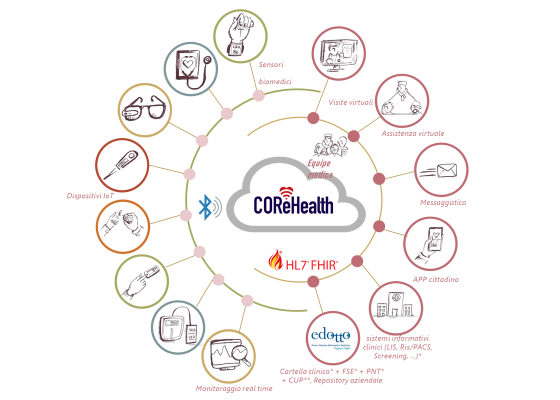Revolutionizing patient care: unleashing the potential of digital innovation
The healthcare landscape is witnessing a paradigm shift with the emergence of digital innovation, presenting both challenges and opportunities. This DT story explores the pressing problems, needs, and expected benefits associated with leveraging digital technologies to transform patient care. By addressing these challenges, healthcare providers can unlock the potential of digital innovation to enhance the quality, accessibility, and efficiency of healthcare services.
Problem or opportunity
The healthcare sector faces several critical challenges, including fragmented care pathways, limited patient engagement, and inefficient healthcare delivery. Traditional models often hinder effective coordination among healthcare stakeholders, resulting in suboptimal patient outcomes. However, these challenges also present an opportunity to harness the power of digital innovation. By integrating digital technologies into healthcare systems, the potential for transformative change becomes evident.
The issues arising in this sector are the following:
- Fragmented care pathways: inefficient communication and data sharing among healthcare providers contribute to fragmented care pathways. This leads to duplicated efforts, delays in treatment, and increased healthcare costs.
-
Limited patient engagement: patient engagement plays a crucial role in achieving positive health outcomes. However, current systems often lack mechanisms for meaningful patient involvement in their own care, resulting in reduced adherence to treatment plans and suboptimal health outcomes.
-
Inefficient healthcare delivery: traditional healthcare delivery models struggle to meet the demands of a rapidly evolving healthcare landscape. Inefficient processes, long waiting times, and limited access to care hinder the overall effectiveness and efficiency of healthcare services.ù
Expected Benefits
-
Improved patient outcomes: by leveraging digital innovation, healthcare providers can enhance patient outcomes through personalized care plans, proactive monitoring, and timely interventions. Empowered patients who actively engage in their care are more likely to achieve better health outcomes.
-
Enhanced access to care: digital technologies can bridge geographical barriers and improve access to healthcare services, particularly in remote or underserved areas. Telemedicine and remote monitoring enable timely consultations, reduce travel burdens, and increase healthcare accessibility for all.
-
Efficient resource utilization for a streamlined healthcare delivery: digital innovation has the potential to optimize resource allocation, reduce healthcare costs, and enhance the overall efficiency of healthcare systems. Streamlined processes, data-driven decision-making, and automation of routine tasks free up resources for more critical aspects of care delivery.
In conclusion, embracing digital innovation presents a transformative opportunity for the healthcare sector. By addressing the challenges, leveraging digital technologies, and focusing on the needs of patients and healthcare providers, we can revolutionize patient care, improve outcomes, and create a more accessible and efficient healthcare system.

CORēHealth is a transformative solution that leverages digital innovation to revolutionize remote healthcare delivery and empower patients to actively participate in their care journey.






